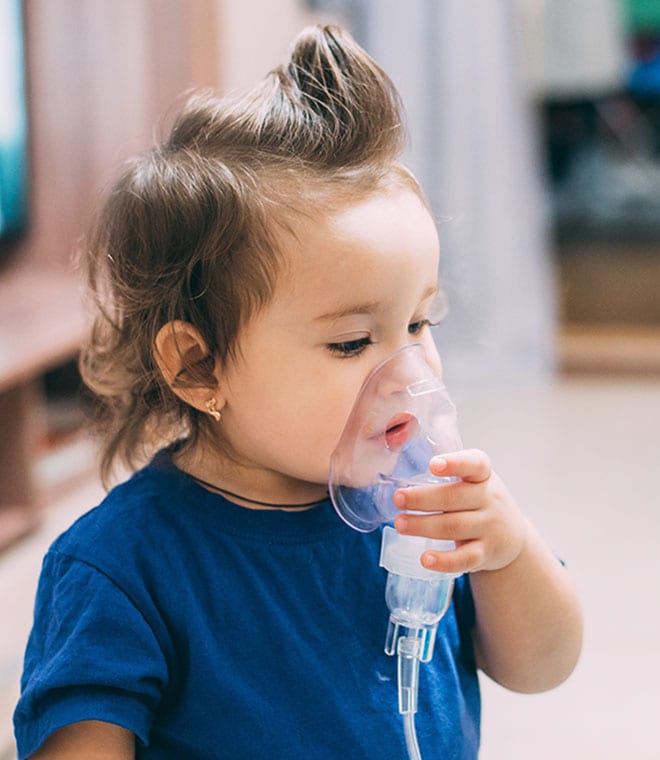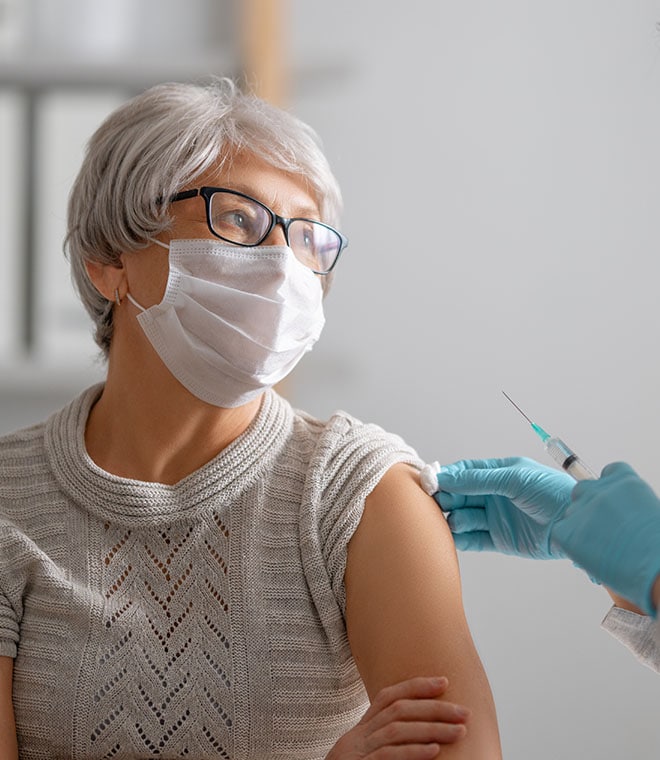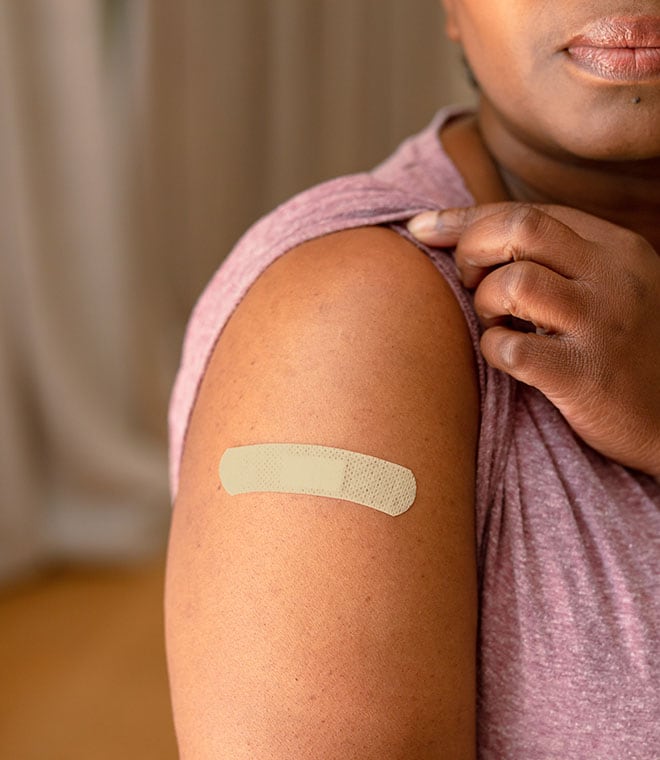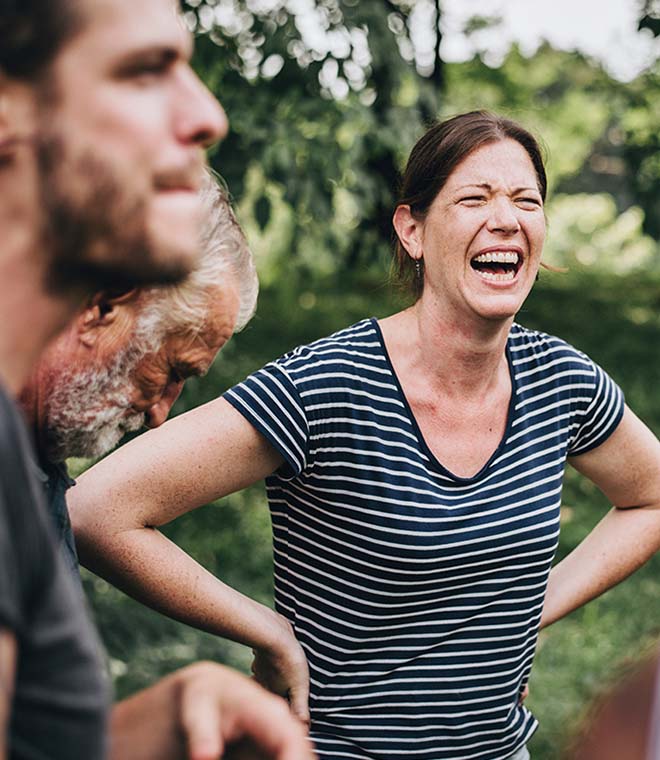Health
Pneumonia symptoms and treatment
By Jenilee Matz, MPH May 09, 2025 • 6 min
Pneumonia is an infection of one or both lungs. It makes it difficult to breathe. The illness can be mild or serious enough to require hospitalization.
What causes pneumonia?
Pneumonia may be caused by a variety of germs, including:
- Viruses: Certain viruses that affect the upper respiratory tract can also cause pneumonia. SARS-CoV-2, the virus that causes COVID-19, and the influenza (flu) virus are the most common causes of viral pneumonia in adults. The respiratory syncytial virus (RSV) is the most common cause of the illness in young children.
- Bacteria: The most common type of bacterial pneumonia is pneumococcal pneumonia. This is caused by the germ Streptococcus pneumoniae. This type of pneumonia can occur on its own or after you’ve had a viral infection, such as COVID-19 or the flu. It often only affects one lobe or part of a lung. When this occurs, it’s called lobar pneumonia.
- “Atypical” bacteria: Mycoplasma pneumoniae is a type of atypical bacteria that commonly causes mild respiratory tract infections. When it causes pneumonia, it may be referred to as “walking pneumonia.” This is because it tends to be milder than pneumonia caused by other germs. Mycoplasma pneumoniae often occurs in children ages 5–17 and young adults, especially those living and working in crowded conditions.
- Fungi: Fungal pneumonia is more common in people with chronic health issues or weakened immune systems. It can also affect those who are exposed to large amounts of certain fungi from bird droppings or contaminated soil.
What are the symptoms of pneumonia?
The severity of your illness depends on your age, overall health and the germ causing the infection. In general, pneumonia may be more serious in children under the age of 5, adults over 65, and people with certain health conditions, including diabetes, heart failure or chronic obstructive pulmonary disorder (COPD). Pneumonia can also be more severe in those with weakened immune systems due to human immunodeficiency virus (HIV), acquired immunodeficiency syndrome (AIDS), chemotherapy or an organ transplant.
Signs of pneumonia may include:
- Fever, often higher than 100.5°F
- Chills, sometimes with shaking
- Cough that may produce green, yellow or rust-colored sputum (mucus from the lungs)
- Shortness of breath
- Chest pain that may get worse when you breathe or cough deeply
- Fast, shallow breathing
- Fatigue
- Loss of appetite
- Nausea or vomiting, especially in kids
The illness may cause different symptoms based on your age and health. Pneumonia may cause a lower than normal body temperature in people with weakened immune systems and adults 65 and older. Older adults may also experience confusion, unclear thinking or other changes in mental awareness. Infants may not show any signs of infection, or they may experience vomiting, fever, cough, tiredness, or trouble breathing or eating.
When to see your healthcare provider
Mild or early signs of pneumonia may seem like a cold or flu. However, it’s important to seek medical care, especially if you have the following symptoms:
- Trouble breathing
- Chest pain
- Fever of 102°F or higher that isn’t improving
- Persistent cough, especially if you’re coughing up pus
You should contact your healthcare provider right away if you’re at high risk for a severe infection.
How is pneumonia treated?
Treatment for pneumonia depends on the type of pneumonia you have, severity of your illness, your health and your age. The goals of treatment are to cure the infection and prevent complications. It’s important to follow your treatment plan as directed by your provider. Most symptoms should improve within a few days with treatment. However, fatigue and tiredness can linger for weeks or more. Treatment often involves:
- Antibiotics: If you have pneumonia caused by bacteria, your healthcare provider will likely prescribe oral antibiotics. Note that antibiotics don’t work on viruses. Make sure you finish your prescription even if you start to feel better.
- Medications to help ease symptoms: Acetaminophen, nonsteroidal anti-inflammatory drugs (NSAIDs) and aspirin can help reduce a fever. (Do not give aspirin to children.) Your healthcare provider may also suggest cough medicine. However, coughing can help your body get rid of the infection, so do not take cough medicine without talking to your provider first.
- Home remedies: Get plenty of rest and be careful not to overdo it until you’re fully recovered. Stay well hydrated, drink warm fluids and consider using a humidifier to help loosen mucous in your lungs. Do not smoke, and avoid secondhand smoke to allow your lungs to heal.
If you have a serious infection, you may need treatment in the hospital. This may involve intravenous (IV) antibiotics and fluids, oxygen therapy or other breathing treatments.
While pneumonia can be serious, most people recover with treatment. If you don’t feel better or you feel worse, contact your healthcare provider. Keep in mind that preventing pneumonia is better than treating it. Wash your hands often, don’t smoke, and talk to your healthcare provider about vaccines that can protect you against pneumonia. You can schedule a vaccine appointment at Walgreens.
Updated by Rebeca Thomas, RN, BSN, May 2025.
Sources:
- https://www.cdc.gov/pneumonia/index.html
- https://medlineplus.gov/pneumonia.html
- https://www.lung.org/lung-health-diseases/lung-disease-lookup/pneumonia/what-causes-pneumonia
- https://www.lung.org/lung-health-diseases/lung-disease-lookup/pneumonia/symptoms-and-diagnosis
- https://www.uptodate.com/contents/pneumonia-in-adults-beyond-the-basics
- https://www.nhlbi.nih.gov/health-topics/pneumonia
- https://www.lung.org/lung-health-diseases/lung-disease-lookup/pneumonia/treatment-and-recovery



